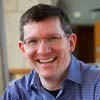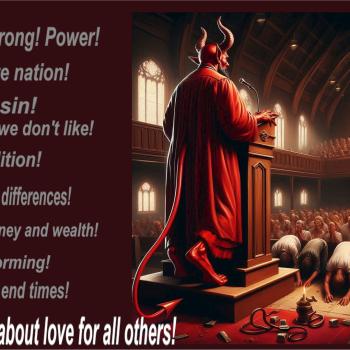 An Interview with Andy Crouch
An Interview with Andy Crouch
By Timothy Dalrymple
Andy Crouch is Senior Editor at Christianity Today International, and author of Culture-Making: Recovering Our Creative Calling, which was named a best book of 2008 by Publisher's Weekly, Relevant, Outreach, and Leadership magazines, and won Christianity Today's 2009 Book Award for Christianity and Culture. Crouch sits on the editorial board for Books and Culture, and is a senior fellow at the International Justice Mission's IJM Institute.
He spoke by phone with Timothy Dalrymple.
We have spoken about your past work, in your seminal book, Culture Making. Your present research and speaking and writing focus on the nature and the uses of power. The transition from culture to power may not be intuitive for many. How do you bridge the two?
When we say power, we often think first of dominance or violence or force. That is a real form of power in the world, but it's not the kind of power I'm writing about. I'm actually interested in the conditions that are necessary to create culture, which is also a form of power. The ability to make something in the world, to bring into being a new cultural artifact, or even just to keep alive in the world a form of culture (whether it's a form of art or technology or cultural practice) -- these also require power in the broader sense of "the capacity to bring change and sustain life in the face of resistance and entropy."
So I am writing about cultural or creative power, and the working title of the book is Creating Power. So I'm writing about the power that makes it possible for us to create, and the power that creates more power, more cultural capacity. There are some kinds of power that shut down creativity and end culture. If you want a particularly powerful example, think of the Taliban using dynamite to destroy those incredible Buddha statues out in the desert of Afghanistan.
That is an exercise of power that is merely destructive; it leaves less creativity, less culture, less flourishing. But there is another kind of power that, when exercised well, leads to a multiplication of power. That's the kind of power that I experience every week when I go to my cello lesson.
I began taking cello lessons last fall, and when I began I had no power to play the cello, none at all. I'd never touched the strings. I asked the cellist down the street if he would teach me. So every week I go, and my teacher Dane has the power to play the cello and he also has the power to teach. Week after week, lesson after lesson, as he invests his power to play and teach, I gain power. I am now able to play a scale that I was not able to play before. Dane has not lost any power. He can probably even play and teach a tiny bit better, all while my own power to create beauty in the world has increased. So there is a kind of power that, when we use it well, multiplies the human capacity to flourish in the world.
If our starting point, when we think about power, is violence and force, then we are very likely to miss out on the proper use of power. But if our starting point is the kind of power that actually creates good in the world, then I think we have a much more fruitful place to begin reflecting on power's dangers as well as its benefits, and that's where I am going with the next book.
It is sometimes said that the extraordinary power of the United States military essentially comes down to "breaking things and killing people." Yet, on the other hand, that power -- although it is not always used wisely -- has created an umbrella of peace over great swaths of the globe. It has arguably created the circumstances for the flourishing of human societies, and in that sense it is, counter-intuitively, not only destructive but creative. I wonder if that's another interesting angle on the uses of power?
This reaches the debate between the Augustinians and the Anabaptists. It's an enduring and necessary conversation, and it's clear that there are deep Christian truths on both sides. The Anabaptists say that force should be used under no circumstances. Force cannot secure peace, they say. The Augustinians say that force cannot create the ultimate peace that Christ brings, but it can restrain evil in a way that provides for human flourishing. This is a very important conversation to have, but I too fall on the Augustinian side of that debate. The just use of force restrains evil and creates room for a better life than we would have otherwise -- notwithstanding that war is not God's will, and the true peace that we all are seeking is never going to be found in this corrupt and broken world.



